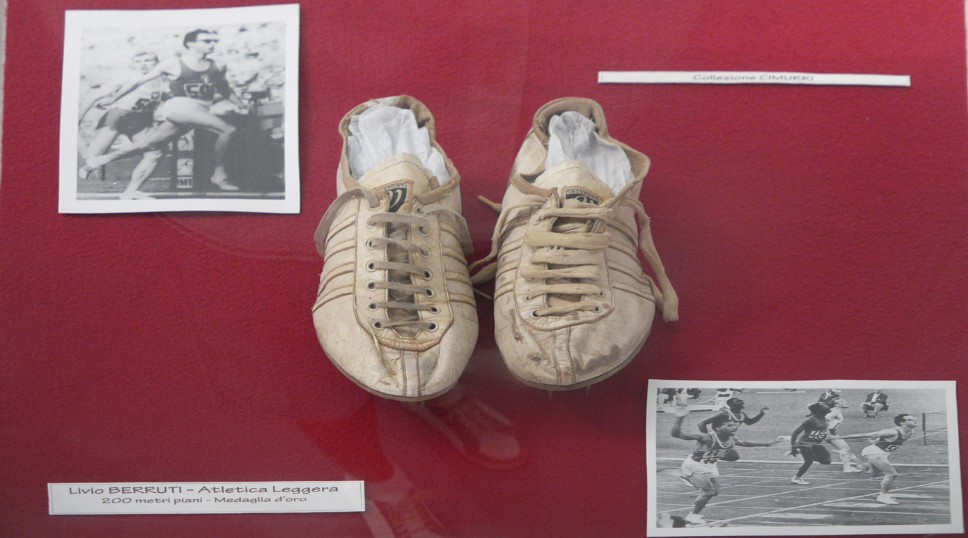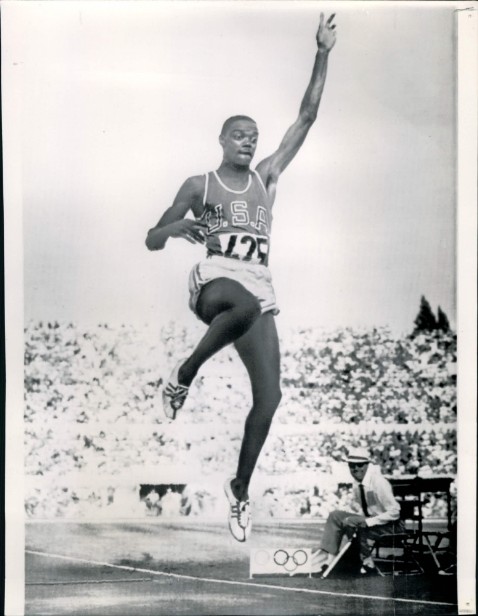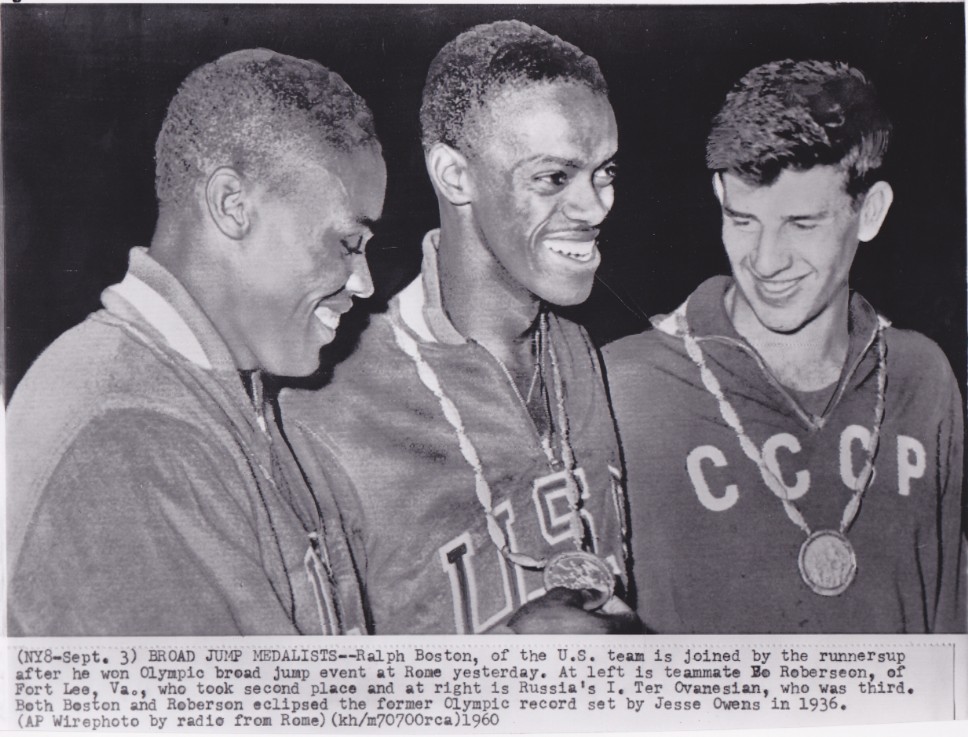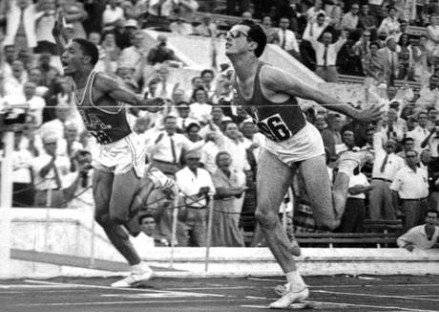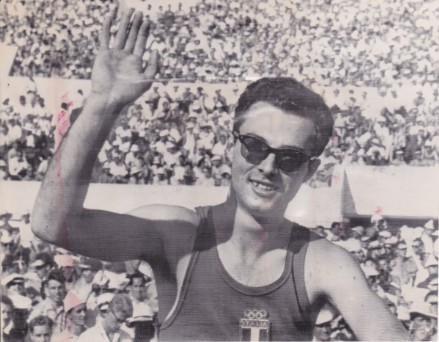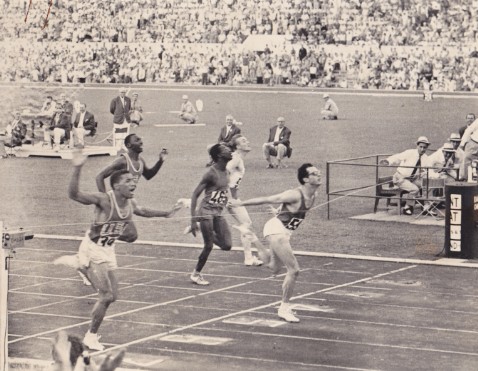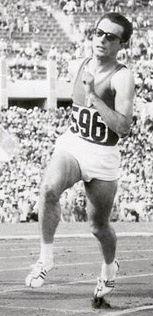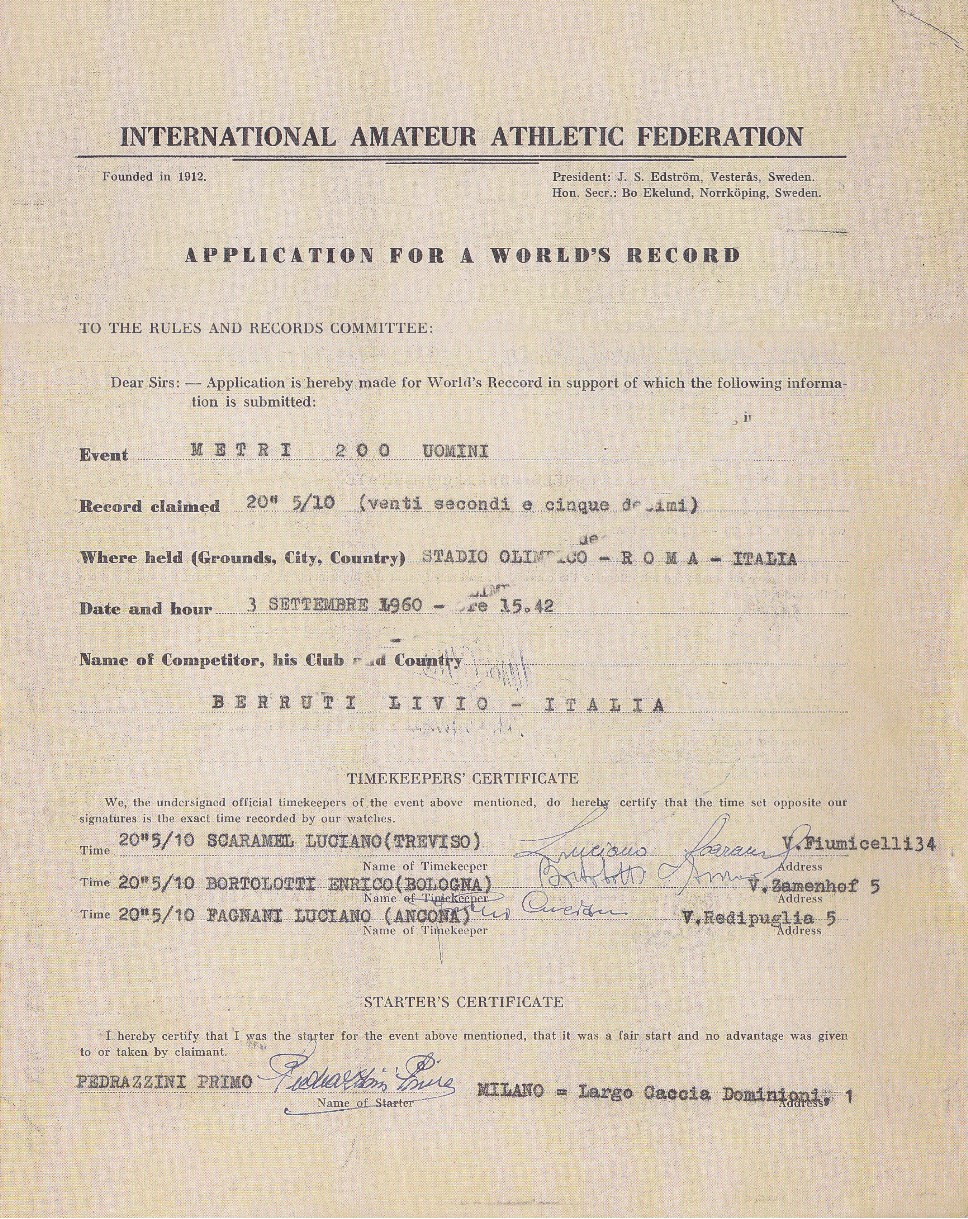Boston - Berruti
Sulla pedana del lungo, quel pomeriggio avanzato del 2 settembre, il campo quasi ingestibile di 49 concorrenti si era sfoltito e ridotto agli sforzi decisivi degli americani Ralph Boston e Bo Robertson, del tedesco Manfred Steinbach e del sovietico Ter-Ovanesyan. Toccava a Boston che mentre correva per il suo ultimo salto romano, avvertì che qualcosa non andava nel suo passo. In volo tentò di concentrarsi sui piedi per centrare bene l'atterraggio. Non perfetto - sapeva di poter far meglio - ma quando gli addetti comunicarono la misura ufficiale di 8,12, Boston capì di aver migliorato il record olimpico. Sapeva anche che questo non gli assicurava nemmeno una medaglia, perchè ai suoi tre rivali restava ancora un salto.
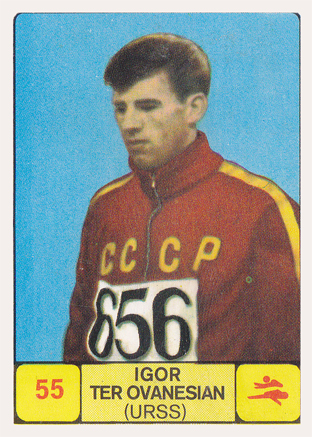
Il pimo fu Igor Ter-Ovanesyan che si levò in aria atterrando a 8,04, dietro Boston, ma avanti a tutti gli altri. Manfred Steinbach, lunghista e velocista passato dalla Germania Est a quella Orientale l'anno prima, saltò subito dopo ed anche lui toccò gli 8 metri, ma senza superarli, a pochi centimetri dal sovietico. Ora restava solo il salto di Bo Roberton. Boston era lì accanto, il suo cuore doveva picchiare proprio forte mentre misuravano il salto di Robertson. Poi il tabellone elettronico comunicò la misura: 8,11. Boston aveva vinto di un centimetro; argento per Robertson, bronzo per Ter-Ovanesyan.
Tutto esaurito lo Stadio Olimpico, il pomeriggio del 3 settembre, per vedere la finale dei 200 metri piani. I sei finalisti (tra i quali 3 americani - Norton, Carney e Stone Johson - un francese Seye, un polacco Foik e l'italiano Livio Berruti) erano ciò che restava di un battaglione iniziale di 71 concorrenti. Dell'italiano l'inviato statunitense Neil Allen scrisse "il battito d'ali di quel gentil uccello e la falcata di seta dello sprinter si muovono in perfetta armonia. Grazia, rapidità, fluidità per me sono sinonimi di Berruti".
Alle 15,10 il via. Berruti, nella corsia 4, saltò bene in partenza. Ai settanta metri era in testa e allungò avvicinandosi alla curva, poi si ricordò che in semifinale aveva addolcito dopo la curva, ora non doveva ripetersi, doveva allungare il passo e non perdere il controllo della sua azione. Nell'ultimo tratto Norton si spense e Stone Johnson rimase staccato. Abdoulaye Seye, il senegalese che correva sotto la bandiera francese, si spinse oltre il polacco Marian Foik. Les Carney stava rimontando dall'esterno. Berruti si avvicinò alla linea d'arrivo sapendo di essere ancora in testa e si tuffò sul filo, ribaltandosi poi sul rosso scuro della pista esausto. Con 20.5 Berruti, migliorando il record olimpico ed eguagliando quello mondiale, vinse l'oro, mentre a Carney andò l'argento ed a Seye il bronzo.
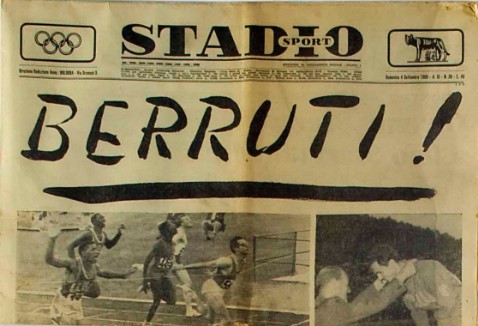
At 15.10 the start. Berruti, in lane 4, started very well. At the seventy meters he was in the lead and stretched as he approached the curve, then he remembered that in the semifinal he had made a mistake after the curve, and he should not repeat that mistake, he had to lengthen his pace without losing control of his action. In the last stretch Norton collapsed and Stone Johnson was left behind. Abdoulaye Seye, the Senegalese who was running under the French flag, overtook the Polish Marian Foik. Les Carney was remounting from the outside. Berruti approached the finish line knowing he was still in the lead and dived to the wire. With 20.5 Berruti, improving the Olympic record and equaling the world record, won the gold, while Carney won the silver and Seye the bronze.
